News
‘Living with Omicron does not mean doing nothing about Omicron’- WHO official
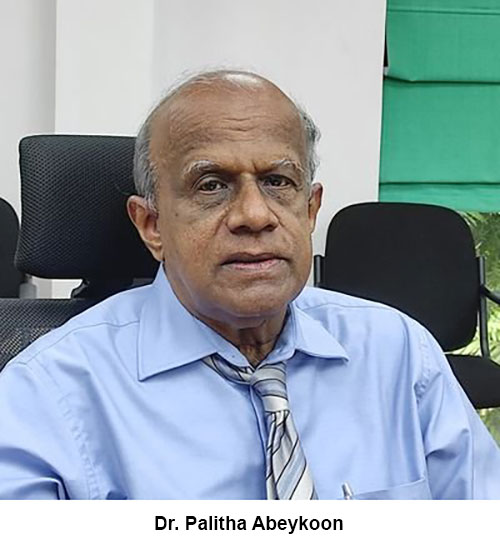
Booster- hesitancy is largely due to misinformation and disinformation that has been floated
Sri Lankan adverse event monitoring system is a regional model
Vaccine hesitancy is a serious threat to global health
The world still ‘has a job to finish’ in terms of bridging vaccine inequality – WHO special envoys
BY RANDIMA ATTYGALLE
Despite the availability of an abundant vaccine supply against COVID-19, less than 35% of Sri Lankans over 12 years have taken the booster dose. Health officials are concerned about this low level of booster intake in a context where more than 95% Lankans over 12 years have received the first dose and nearly 80% of them have also received the second jab.
The floating of misinformation and disinformation both through mainstream and social media is largely attributed to this. Speaking to the Sunday Island, Dr. Palitha Abeykoon, WHO Director-General’s Special Envoy (for South East Asian region for COVID-19) said that Sri Lanka has been one of the most ‘vaccine-compliant countries’ and therefore the vaccine hesitancy which is encountered right now comes as a surprise.
“Even before the advent of the COVID pandemic, in 2019 WHO ranked vaccine hesitancy (which is either the delay in the acceptance or refusal to vaccinate despite the availability of vaccine services) as a serious threat to global health.”
Omicron variant is far more transmissible than the earlier variants and therefore its spread is very rapid. “With the evidence that we have where the vaccine effectiveness seeming to wane slowly over a few months, getting a booster dose makes perfect scientific sense, particularly to prevent serious illness and death. Still many people do not seem to understand the difference between getting infected and the consequences,” remarked Dr. Abeykoon.
The vaccines as the public health official explained, does not prevent infection per se directly and even a vaccinated person can become COVID positive. “But the big difference is that if one has taken two doses and a booster at the correct time one will have the confidence that serious illness will not follow. The growing global evidence is supporting this position of the effectiveness of the vaccines and the booster taken after a certain interval from the second dose.”
The belief that Omicron variant is mild and therefore it is perhaps better to have Omicron and develop natural immunity than getting vaccinated is a risky attitude to have warns Dr. Abeykoon.
“The evidence is Omicron is possibly less severe than Delta but its higher transmissibility will give larger numbers of infections. This would lead to larger numbers getting serious illness and the pressure on health systems will increase. The number of deaths will also increase. Now the evidence that WHO has is that the numbers getting complications and dying are significantly higher for those who did not have at least two doses of vaccine. In Sri Lanka too there has been a near 30% increase in the deaths in the past weeks. Therefore still vaccination is a primary need along with the basic public health and social protection measures.”
Living with Omicron does not mean doing nothing about Omicron, reiterates the WHO official. Since people seem to get infected even after the booster, many question the need for it which is unwise thinking he said. “Getting infected per se is not as the same as getting seriously ill or dying.”
Another myth to be debunked is that the booster has many side effects and results in death. “The risk assessments done have given no such evidence to prove this. The Sri Lankan adverse event monitoring system is excellent; it is in fact a regional model and this too has no evidence to support this misconception.
“Some say that they are being used as guinea pigs here to test these vaccines. The vaccine trials and the follow-up have been going on for a couple of years for most vaccines and therefore this allegation is baseless. Of course being newer vaccines the WHO has advised close monitoring of the post vaccination situation globally,” Dr. Abeykoon remarked.
The fear of infertility is another major misconception to be debunked said the Consultant. There are also certain cultural and religious beliefs which preclude some wanting to take injections. “Getting vaccinated is a choice one makes but we have situations when there is a conflict of personal choice and public good. There are technical and ethical issues contained in this situation.”
In the region Sri Lanka already stands out as a leader in COVID-19 vaccination programme which further consolidates our ‘vaccination tradition’ Dr. Abeykoon pointed out. “There are a few countries that have not been able to cover 40% of the population with two doses, mainly due to supply and delivery issues. In fact we have already surpassed the WHO June global target of 60%.”
To date, and despite WHO’s endless efforts with Member States to deliver lifesaving COVID-19 vaccines to the world’s least-developed countries, through COVAX, particularly, as well as other facilities, there are still 83 Member States which did not reach the target of vaccinating 40% of their populations by the end of 2021.
The latest communiqué by the WHO Director General Dr. Tedros’s Special Envoys for COIVD-19 notes ‘a persistent lack of solidarity accentuating the inequities and unfairness. And this means that even more countries are likely to fall short of the goal of vaccinating 70% of their population by mid-2022.’
On a positive note, Sri Lankan management of the pandemic and people’s compliance with public health measures have been laudable in contrast with some of the Western countries, pointed out the WHO official. “We also recognize the advent of COVID-19 fatigue among many groups and the social and economic implications that have hurt most groups. But the fact that they still, by and large, adhere to the basic prevention measure is heartening.”
Latest News
India vs Pakistan match is a godsend for T20 World Cup hosts Sri Lanka
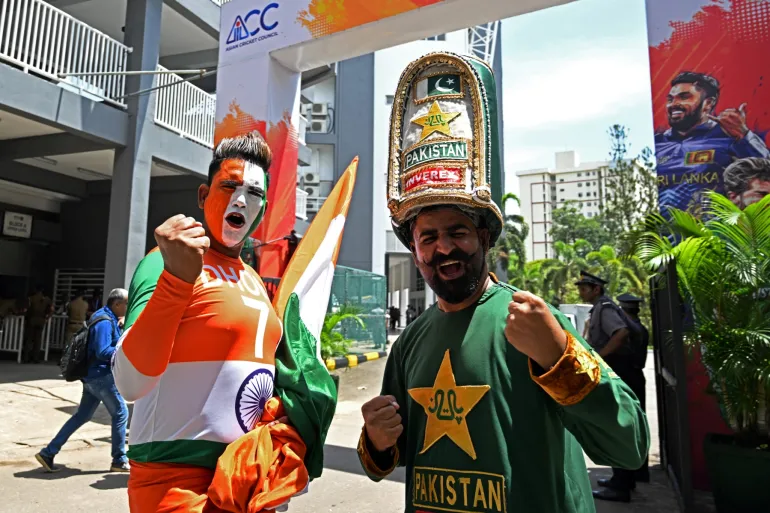
Almost 30 years ago today, India and Pakistan formed a combined cricket team to take on Sri Lanka ahead of the 1996 Cricket World Cup in an unprecedented moment of unity in the sport’s history.
The two age-old rivals put aside their differences and came together in an act of solidarity to support a fellow South Asian team, who faced the threat of match boycotts in a tournament they had battled hard to host.
India versus Pakistan is the most highly marketed fixture at every multination tournament – the World Cup, Asia Cup or Asian Games – whether it’s a men’s, women’s or Under-19 event.
Few sporting events globally carry the weight and anticipation of an India-Pakistan cricket match. So, when Pakistan’s government ordered its team not to face India at the ongoing T20 World Cup, the tournament was briefly pushed into a state of chaos.
It also left Sri Lanka, the designated host of the fixture, holding its collective breath.
A week of negotiations led to a dramatic late U-turn by the Pakistani government and the match will now take place as scheduled on Sunday at the R Premadasa International Cricket Stadium in Colombo.
But what if the boycott had gone ahead? The impact could have been catastrophic, not just for Pakistan, but also for the International Cricket Council (ICC), as well as Sri Lanka.
With the crisis seemingly averted, the island nation stands poised to reap the benefits in its financial landscape, diplomatic standing and community.
The tourism and hospitality industry was one of the hardest hit during Sri Lanka’s financial meltdown and this match will see an enormous influx of fans from India and Pakistan coming into the country.
Hotels in and around Colombo were fully booked out well ahead of the tournament but the industry braced itself for heavy losses after Pakistan threatened a boycott.
“There’s been a massive impact since the boycott was announced,” Sudarshana Pieris, who works in Sri Lanka’s hospitality sector, told Al Jazeera.
“All major hotels in Colombo were fully booked by Indian travel agencies well ahead of the match and once the boycott was announced, we lost almost all of those bookings,” he said.
“But after Pakistan reversed their decision, hotel room rates shot up by about 300-400 percent at five-star establishments in Colombo.”
It’s not just hotels but several other local businesses – from street vendors to high-end restaurants – who are hoping for an increased footfall and spending over the weekend.
These short trips and the experiences they offer could influence visitors to extend their stay or return to Sri Lanka on holiday, long after the game has ended, in a potential long-term benefit to the industry.
Another relatively underestimated impact of the game would be the employment opportunities it creates, albeit temporarily, in the media, event management, security and transportation industries.
Asanka Hadirampela, a freelance journalist and broadcaster currently working as a Sinhala language commentator for the World Cup, recognises the marquee match as a great opportunity from a personal standpoint.
“This is my first World Cup as a broadcaster,” Hadirampela said.
“The India-Pakistan fixture is the biggest and most-watched game of the tournament. So to get to work on such a match is exciting and I consider it a special achievement.”
The lines are always blurred between sport and politics in South Asia.
So while the financial gains are expected to be significant, the fixture’s impact on the region’s geopolitical environment cannot go amiss.
Pakistan’s boycott, too, was explicitly political, as confirmed by the country’s Prime Minister Shehbaz Sharif when he said that they were offering support to Bangladesh after the Tigers were kicked out of the tournament by the ICC.
The reversal of Pakistan’s decision, which they said came after requests to reconsider the boycott by several regional “friends”, was steeped in politics, too.
Sri Lanka’s President Anura Kumara Dissanayake reportedly had a phone conversation with PM Sharif, urging his government to rethink their decision to boycott the game as the successful staging of this encounter would not only position Sri Lanka as a capable host of global sporting events but also reinforce its standing as a neutral mediator in a region fraught with geopolitical complexities.
Sri Lanka and Pakistan have always maintained strong diplomatic relations, which have extended to the cricket field as well.
Sri Lanka were one of the first teams to travel to Pakistan following their 10-year ostracisation from international cricket, which came as a result of a terrorist attack targeting the Sri Lankan team in March 2009.
When Al Jazeera reached out to Sri Lanka Cricket (SLC), its vice president Ravin Wickramaratne confirmed that SLC did, indeed, reach out to the Pakistan Cricket Board (PCB) after the boycott was announced.
“We asked them to reconsider the decision,” Wickramaratne said.
“It [boycott] would have impacted Sri Lanka economically, whether directly or indirectly.
“We have always had a good relationship with the PCB and we have always supported them, so we’re happy with their decision.”
A little over 24 hours ahead of the match in Colombo, there is a sense of palpable excitement and a growing buzz around the fixture as it returns from the brink of cancellation.
As of Saturday morning, 28,000 tickets had been sold for the game but local organisers expect a capacity crowd of 40,000 to make it into the stands.
Come Sunday, thousands more will line the streets in and around Maligawatte, the bustling Colombo suburb that houses the famous Premadasa Stadium.

Business
“We Are Building a Stable, Transparent and Resilient Sri Lanka Ready for Sustainable Investment Partnerships” – PM
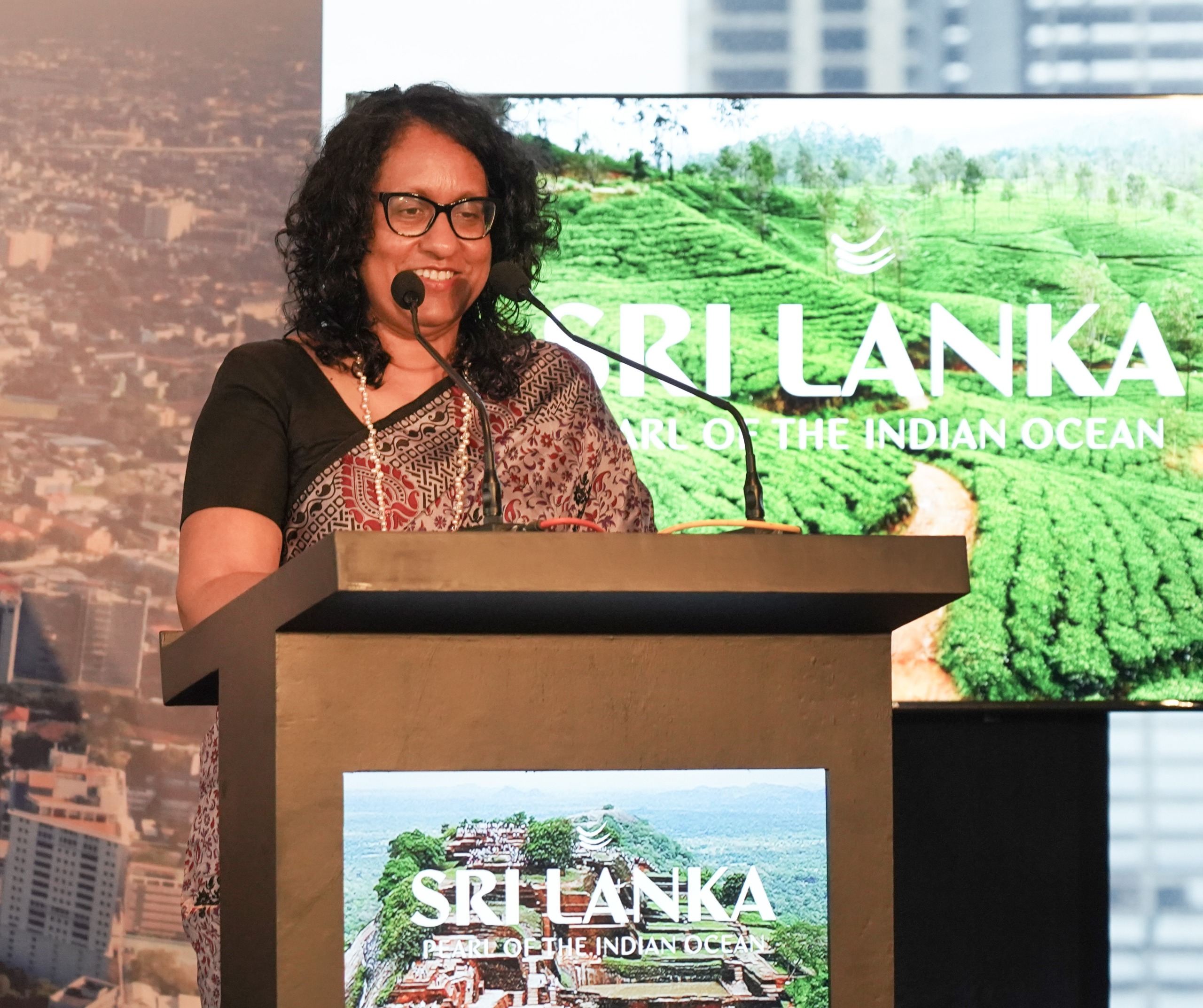
Prime Minister Dr. Harini Amarasuriya addressed members of the Chief Executives Organization (CEO) during a session held on Thursday [3 February 2026] at the Shangri-La Hotel, Colombo, as part of CEO’s Pearl of the Indian Ocean: Sri Lanka programme.
The Chief Executives Organization is a global network of business leaders representing diverse industries across more than 60 countries. The visiting delegation comprised leading entrepreneurs and executives exploring Sri Lanka’s economic prospects, investment climate, and development trajectory.
Addressing the gathering, the Prime Minister emphasized that Sri Lanka’s reform agenda is anchored in structural transformation, transparency, and inclusive growth.
“We are committed not only to ensuring equitable access to education, but equitable access to quality education. Our reforms are designed to create flexible pathways for young people beyond general education and to build a skilled and adaptable workforce for the future.”
She highlighted that the Government is undertaking a fundamental pedagogical shift towards a more student-focused, less examination-driven system as part of a broader national transformation.
Reflecting on Sri Lanka’s recent political transition, the Prime Minister stated:
“The people gave us a mandate to restore accountability, strengthen democratic governance, and ensure that opportunity is not determined by patronage or privilege, but by fairness and merit. Sri Lanka is stabilizing. We have recorded positive growth, restored confidence in key sectors, and are committed to sustaining this momentum. But our objective is not short-term recovery it is long-term resilience.”
Addressing governance reforms aimed at improving the investment climate, she said:
“We are aligning our legislative and regulatory frameworks with international standards to provide predictability, investor protection, and institutional transparency. Sustainable investment requires trust, and trust requires reform.”
Turning to the recent impact of Cyclone Ditwa, which affected all 25 districts of the country, the Prime Minister underscored the urgency of climate resilience.
“Climate change is not a distant threat. It is a lived reality for our people. We are rebuilding not simply to recover, but to build resilience, strengthen disaster mitigation systems, and protect vulnerable communities.”
Inviting CEO members to consider Sri Lanka as a strategic partner in the Indo-Pacific region, she highlighted opportunities in value-added mineral exports, logistics and shipping, agro-processing, renewable energy, pharmaceuticals, and innovation-driven sectors.
“We are not looking for speculative gains. We are seeking long-term partners who share our commitment to transparency, sustainability, and inclusive development.”
She further emphasized collaboration in education, research, vocational training, and innovation as essential pillars for sustained economic growth.
Concluding her address, the Prime Minister expressed appreciation to the Chief Executives Organization for selecting Sri Lanka as part of its 2026 programme and reaffirmed the Government’s readiness to engage constructively with responsible global investors.
The event was attended by the Governor of the Western Province, Hanif Yusoof, and other distinguished guests.
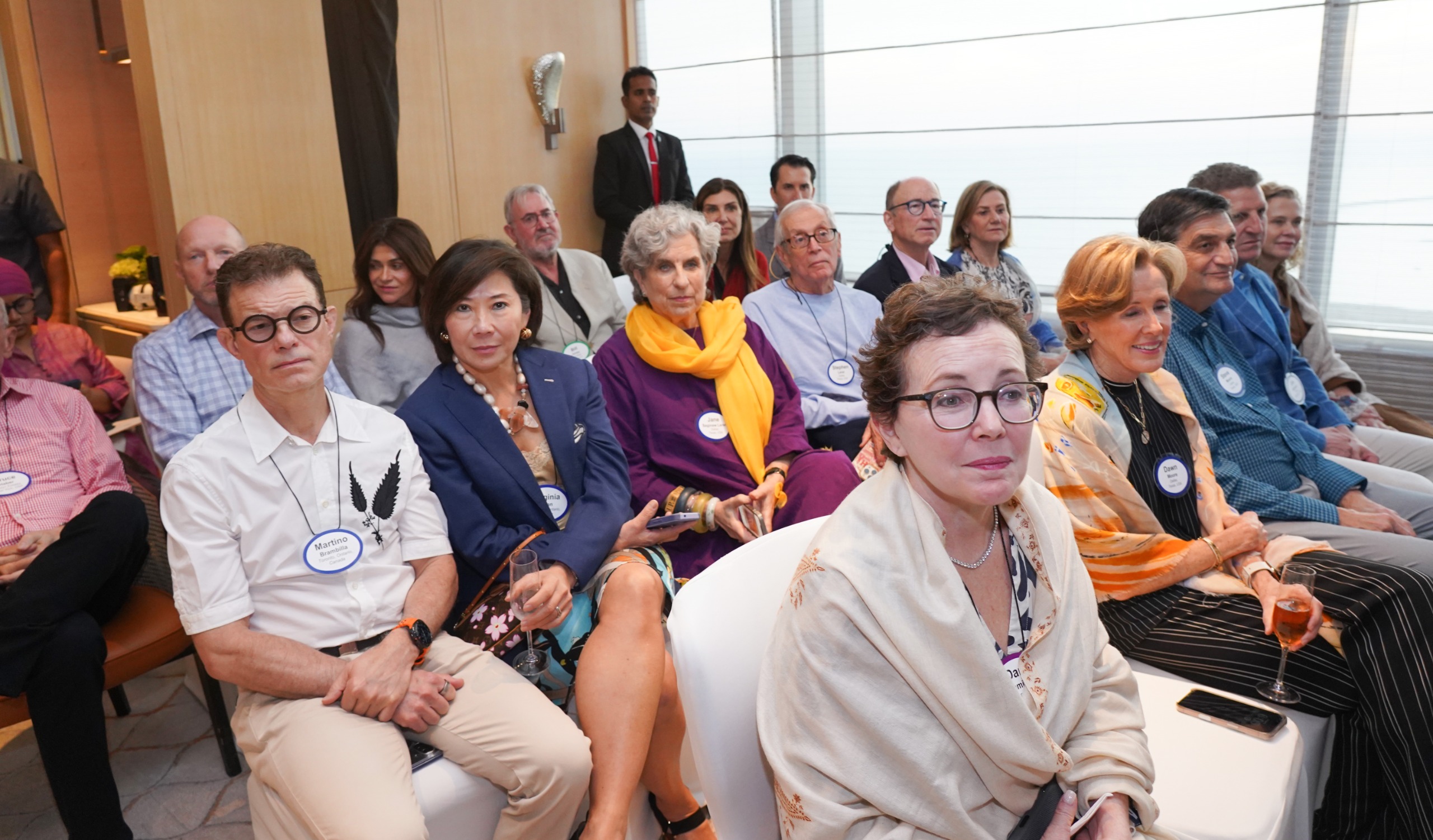
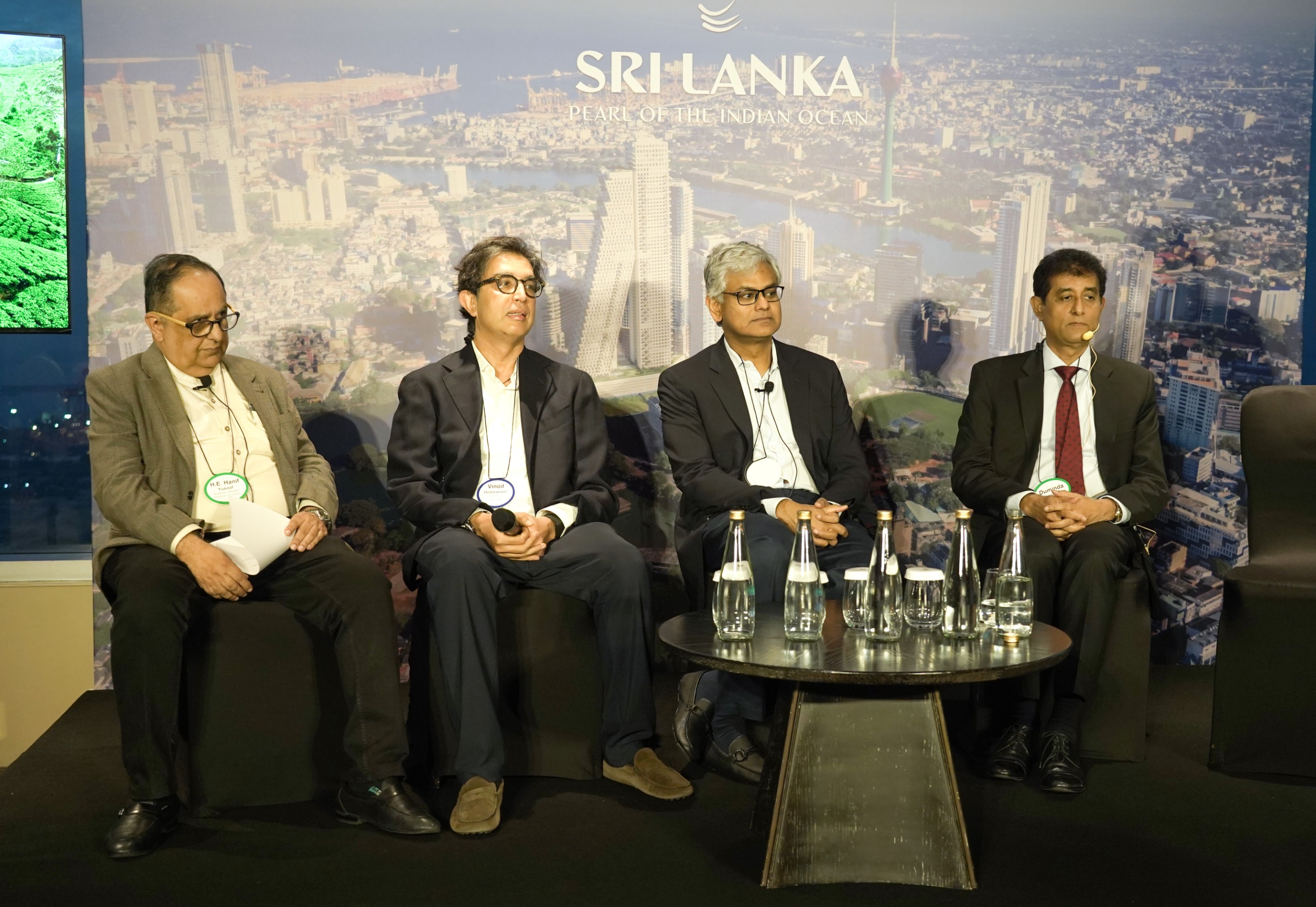
[Prime Minister’s Media Division]
News
Prez AKD congratulates BNP’s Tarique Rahman on B’desh election win
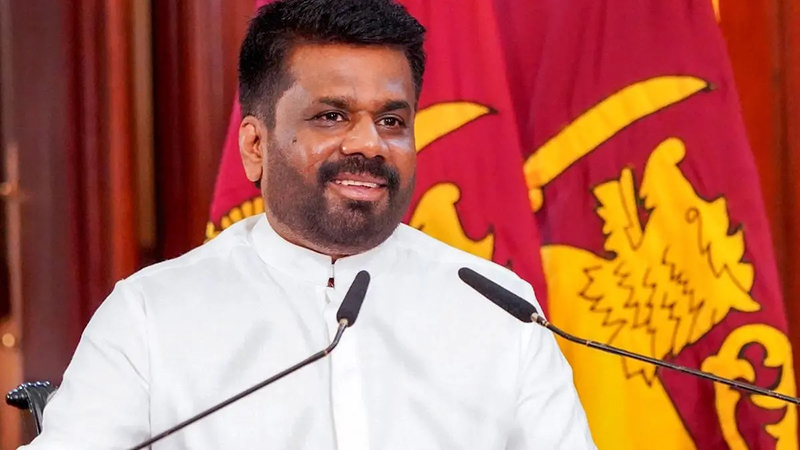
President Anura Kumara Dissanayake has extended his congratulations to the Bangladesh Nationalist Party (BNP) and its leader, Tarique Rahman, following their landslide victory in Bangladesh’s parliamentary elections.
“Best wishes to the people of Bangladesh for reaffirming their faith in democracy, and congratulations to Mr. Tarique Rahman on leading the BNP in these elections. The results reflect the trust placed in him. I look forward to strengthening ties between our two nations,” President Dissanayake said, in a post on ‘X’.
The Bangladesh Nationalist Party won a landslide parliamentary election on Friday, securing a resounding mandate in a pivotal vote that is expected to restore political stability in the South Asian nation.
The parliamentary election held on Thursday was Bangladesh’s first vote since the 2024 Gen Z-driven uprising that toppled long-time premier Sheikh Hasina.
Opinion polls had given BNP an edge, and the party lived up to the forecasts, with the coalition it dominates winning 209 seats to secure an overwhelming two-thirds majority in the 300-member Jatiya Sangsad, or House of the Nation, Jamuna TV showed.
Soon after it won a majority in the overnight vote-count, the party thanked and congratulated the people and called for special prayers on Friday for the welfare of the country and its people.
-

 Business4 days ago
Business4 days agoAutodoc 360 relocates to reinforce commitment to premium auto care
-

 Midweek Review4 days ago
Midweek Review4 days agoA question of national pride
-

 Opinion3 days ago
Opinion3 days agoWill computers ever be intelligent?
-

 Midweek Review4 days ago
Midweek Review4 days agoTheatre and Anthropocentrism in the age of Climate Emergency
-

 Editorial6 days ago
Editorial6 days agoThe JRJ syndrome
-

 Features8 hours ago
Features8 hours agoThe Rise of Takaichi
-
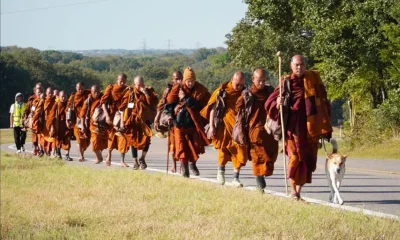
 Opinion4 days ago
Opinion4 days agoThe Walk for Peace in America a Sri Lankan initiative: A startling truth hidden by govt.
-
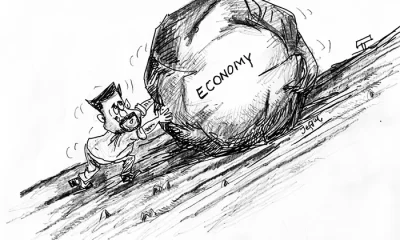
 Opinion5 days ago
Opinion5 days agoBeyond 4–5% recovery: Why Sri Lanka needs a real growth strategy













